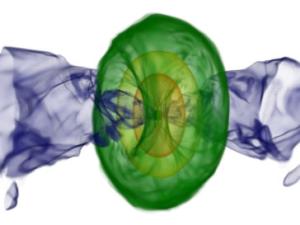

Research Bio
Wick Haxton is a theorist who works on neutrino and nuclear astrophysics, low-energy tests of symmetries (parity, CP, lepton number), and associated many-body physics of atoms, nuclei, and condensed matter. He received his BS from UC Santa Cruz in 1971 and PhD from Stanford University in 1976. His early research career included seven years with the Los Alamos Theory Division, where he was a J. Robert Oppenheimer Fellow and scientific staff member. He then spent 25 years as a professor at the University of Washington, including 15 years as director of the Institute for Nuclear Theory, the Department of Energy’s national center for the field, before moving to UC Berkeley in 2009. He directs the Network for Neutrinos, Nuclear Astrophysics, and Symmetries, a Berkeley-led NSF Physics Frontier Center focused on the multi-messenger astrophysics of supernovae, neutron stars, and neutron-star mergers.
Haxton is a Fellow of the American Physical Society (1987), the American Association for the Advancement of Science (1988), and American Academy of Arts and Sciences (1999); and a member of the National Academy of Sciences (1999) and the Washington State Academy of Sciences (2008). He chaired the Physics Section of the NAS for three years, 2013-16. He received a Guggenheim Fellowship in 2000, APS’s Hans Bethe Prize in 2004, and a Simons Fellowship in 2016. Haxton has served the American Physical Society in many capacities, including as chair of the Astrophysics (1997) and Nuclear Physics (1993) Divisions, General Councillor (1991-95), and member of the Board of Directors (2014-16). Haxton is an editor for Physics Letters B and co-Editor of the Annual Review of Nuclear and Particle Science.
Research Expertise and Interest
astrophysics, neutrino physics, nuclear astrophysics, tests of symmetries and conservation laws in nuclear and particle and atomic physics, many-body theory, effective theories

